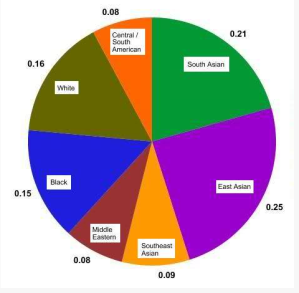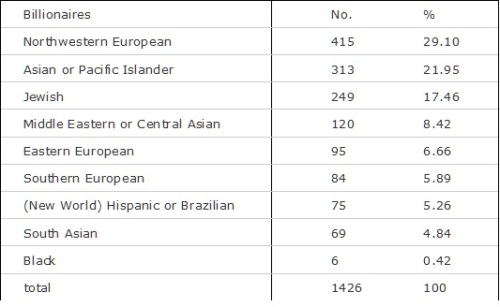Following up on Klaudia Amenabar’s charges about sexism in Star Wars and a recent story by N.K. Jemisin on race, this seems like a good time to offer a discussion on relativism as it relates to racism, sexism and homophobia. In recent years, we’ve had several heated discussions in the SFF community provoked by statements from minority writers that look/feel like racism or sexism but aren’t defined that way. This is because of relativism in the way we define racism, sexism and homophobia. The current progressive paradigm is that racism, for example, is about oppression, so only members of an oppressing group can be considered racist. This means we should define comments about race (or gender/sex/sexual orientation) from oppressed minority persons as activism or protest, when the same statement, made by a white male (considered an oppressing group), would be considered damningly racist. This also means that minority writers have a free pass to say whatever they want about race, sex, gender and sexual orientation without repercussions, while white writers (the oppressor group) have to be careful of what they say.
This system provokes some interesting questions. If racism is relative, then should it be defined differently by locale and by who feels oppressed? If a school is majority black, for example, and has a black administration, should white students be considered a minority and given a free pass to say whatever they want? The city of Atlanta is majority black and has a black head of government. Are white supremacist statements made in Atlanta a form of protest, or are they considered racist because Atlanta is part of the larger US system? Ok, so then what about Zimbabwe? Not only is the country overwhelmingly black, but the government has a history of human rights violations against white residents. Are white supremacist statements made in Zimbabwe still to be considered racist, or are they protest? And last, what happens when whites become a minority in the US within about the next 20 years. Younger age groups (currently in elementary school) are already experiencing this issue, and it will become nation-wide as older residents die off. Will the definition of racism suddenly shift at that point?
We’re given to knee-jerk assumptions about racism, but the whole thing is pretty confusing when you start looking at the details. I’ll try to sort it out. First, should we rate oppressor status by population majority? Asians, it turns out, are the largest world demographic group with ~60% of the world population; whites and blacks are roughly even at about ~15%. The sex ratio is currently skewed slightly to male, maybe because of cultural issues in China and India, but remains roughly 50/50. Definitely white men don’t hold majority status world-wide, so majority/minority won’t work very well as a measure of white oppression of other races on a global scale.

So, should we maybe equate oppressor status with wealth instead? When it comes to that, then we do see a worldwide distribution that skews heavily to white and male. About 55% of the world’s billionaires are white, 30% are Asian, and less than 1% are black. About 11% of the world’s billionaires are female. About 1% of the world’s population owns half the wealth, and the distribution of wealth leans heavily to the US and Western Europe.

So, if you equate wealth with oppression, then definitely white men are going to be the powerful oppressors both world-wide and in the US/UK. But, is this a statement that can be generalized to mean all white men are wealthy oppressors?
Let’s look at wealth demographics of the US population. By race, Asians tend to have the highest household incomes, then whites, Hispanics and blacks. About 10% of whites fall below the poverty line, and 20% fall into the upper socioeconomic class. That leaves 70% of households that fall into the middle and working socioeconomic classes with annual incomes somewhere between $10,000 and $100,000. So if we’re equating wealth with oppressor status, should the 80% of poor, middle and working class whites be lumped in with the upper 20% as racist oppressors? And what about the lowest 10% of whites that fall below the poverty line? Should apparently racist statements about this group by minorities be considered differently?




Jan 09, 2020 @ 10:44:51
Perhaps the best measure would be how effective a given bigoted statement is. A bully who calls a boy a faggot can be very hurtful, but if the boy calls him a “breeder,” he’ll just be laughed at. Likewise, a black person who calls a white person a honky doesn’t have any impact. Not in the US, anyway.
That also changes it from criticism of people to criticism of behavior, which is probably a good idea. That is, a given statement is racist/sexist/homophobic etc. because it hurts people.
That makes it a lot harder to collect stats, though, and, of course, it’s hard to know when someone is genuinely offended vs. just making noise.
LikeLike
Jan 09, 2020 @ 12:28:18
Thanks for checking in, Greg. I think the issue is that minorities have moved on from words like “breeder” or “honky” to words like “homophobe” or “racist.” These words are actually damaging, as they have an effect on the target’s reputation and sometimes their livelihood.
Notice the number of publishers who have had to pull books recently because of the “cancel culture” that attacks writers as racist. That suggests it’s being used as a weapon.
In addition, men, and especially white men, have been coming in for a lot of attacks in speeches, posts and articles. For example, Disney went to a lot of trouble for diversity in the recent Star Wars series, making sure it was representative and that everyone had a substantial role. So, it was attacked as sexist because men were included as Rey’s support structure in search of balance.
LikeLike
Jan 10, 2020 @ 16:14:07
//Notice the number of publishers who have had to pull books recently because of the “cancel culture” that attacks writers as racist. //
What is that number?
LikeLike
Jan 10, 2020 @ 16:31:48
I think most of the people pulling books have been authors who overreacted to “woke scolds” on Twitter. Maybe they were pressured by their publishers, though. Truthfully, I think people need to realize they can just ignore what’s said on Twitter. Particularly when so many of them don’t even seem to be members of the minority groups they claim to be advocating for.
LikeLike
Jan 10, 2020 @ 18:32:25
CF: One a month, maybe? I’m sure that’s a high end estimate, but I gather attacks on books as racist/sexist/homophobic is getting to be a regular thing.
Greg: I’m not sure it’s overreaction. Maybe their mistake is engaging with the horde on Twitter, but it would seem to be a bad time to release a book with that kind of outcry going on. It makes a promotion campaign nearly impossible. I do notice Amélie Wen Zhao’s publisher just held her book Blood Heir for a few months and then quietly published it.
LikeLike
Jan 09, 2020 @ 17:25:18
“Who’s a Racist/Sexist/Homephobe?”
JK Rowling, much to her surprise. Or some lady who wrote an unremarkable romance novel 20 years ago who had a Chinese character with blue eyes. Or myself, for that matter.
I think its a mistake these days to examine any of this SJW “theory” from the perspective of Reason, capital R. They literally make it up as they go along, there’s no reason involved in any of it.
If I have a Chinese character in my story, I’m a racist. If I -don’t- have a Chinese character, I’m a racist.
If I’m a white male, I’m a racist. If I’m anything else, I can’t be called a racist no matter what I say or do, no matter how horrible.
There’s no reason there. Nothing to work with.
Better to take a hard look at the person making the accusation and decide if they have any credibility. 99.95% of the time its bogus. Any organization that takes such bogus accusations seriously does not need my money or my attention.
LikeLike
Jan 09, 2020 @ 21:41:06
>I think its a mistake these days to examine any of this SJW “theory” from the perspective of Reason, capital R. They literally make it up as they go along, there’s no reason involved in any of it.
I dunno. I’m going to make an effort to analyze some of it in the next few blogs. Part of the reason is, as I’ve mentioned above, that these words actually are effective in tarring the image of the person they’re applied to, whereas words like “honky” aren’t. Also, activists may be educated with specific techniques that are presented as most effective in winning a cultural conflict. More on this later.
I agree that it’s important to look at the situation. Sometimes it’s a matter of mean kids bullying each other, and sometimes it’s a matter of adult activists using someone to make a point. Both these activities are divisive and damaging. Which make you wonder why people continue? What rewards are they getting?
LikeLiked by 1 person
Jan 10, 2020 @ 01:48:18
“What rewards are they getting?”
Look at Klaudia Amenabar. What does she get out of her ludicrous statements about Star Wars? Clicks, pretty much. Attention.
Most of it is marketing.
LikeLike
Jan 10, 2020 @ 11:07:00
You’re right I had no idea she was on the Earth until her comments.
It is always interesting to do a gender flip test, though. What if Poe and Finn were women? Do you suppose the unit of three would have worked as smoothly? Or what if Rey was a man, and Poe and Finn were women? How would that have played? Then flip Ren. How would it have worked if all the principals were women?
LikeLiked by 1 person
Jan 10, 2020 @ 17:01:47
“How would it have worked if all the principals were women?”
Like the Ghost Busters reboot. ~:D
More seriously there’s no reason why an all-women cast wouldn’t be fine, assuming it was written properly, but objecting to the story because there are men in it is ridiculous. And 100% normal for Twitter these days.
LikeLike
Jan 10, 2020 @ 22:26:46
The RWA is an example of a majority female organization. Look how well that’s going.
LikeLike
Jan 10, 2020 @ 22:43:07
RWA, a whole organization so riven with internal dissension and backbiting that one (1) not-very-bright SJW is taking the whole thing down. Truly a pitiful showing.
LikeLike
Jan 10, 2020 @ 23:18:19
Massive cat fight. It’s amazing how much corruption it’s uncovered, though. The SFWA should take note.
LikeLike